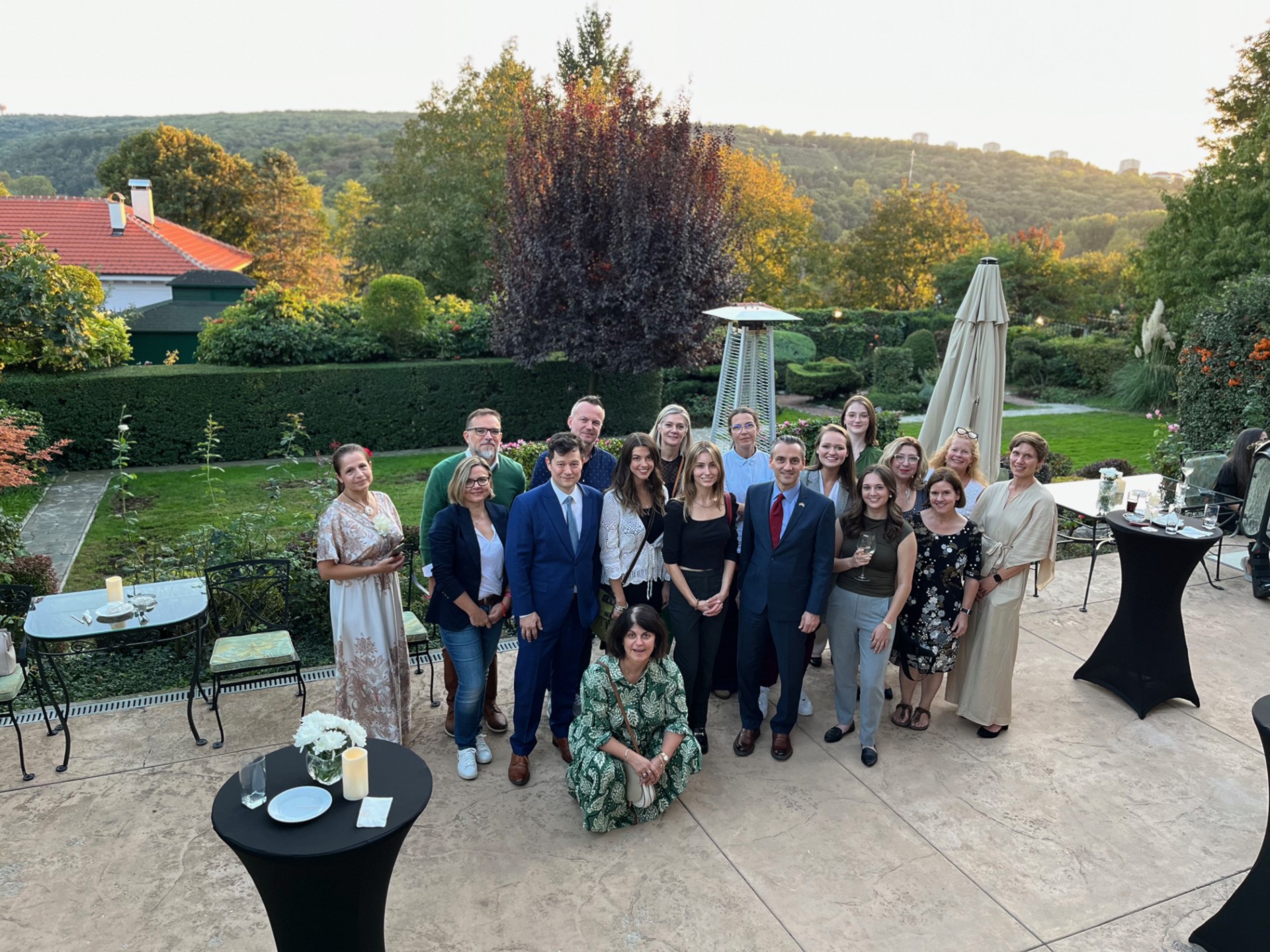 (Photo by Matt Kosterman Productions)
(Photo by Matt Kosterman Productions)Since 2003, School of Music faculty member Natasha Bogojevic has shared her experience as a composer with DePaul students. This fall, she will take on a new challenge: Developing music education in Serbia as a Fulbright Scholar. In this Q&A, Bogojevic discusses goals for her time in Belgrade and what inspires her to engage in intercultural music conversations.
Congratulations on this prestigious award! What will this Fulbright allow you to do?
As a Fulbright Scholar, I will teach Music Appreciation courses to students at Belgrade’s University of Arts who are not majoring in music. This class is currently not part of university curriculum. I will also give seminars about 20th Century Composition Techniques to students at the university’s School of Music and offer public lectures on American contemporary art music. My objective is to focus on the works of often marginalized musicians of our time, particularly the music of American women composers, including my own opus and musical poetic.
Why is it important to you to advance music education in Serbia?
I am a native of former Yugoslavia and after graduation started my career as an assistant professor of composition at the University of Arts in Belgrade. In the 1990s during the brutal civil war, I witnessed the disintegration of this country. The tragedy of those times greatly increased nationalism and created vicious beliefs that music in Serbian society also engendered deep and unresolved cultural divisions.
Even today, the tensions of the rural-urban conflict and the antagonism over musical and cultural tastes represent a significant and complicated topic in Serbian society. The cultural vacuum in Serbia is still present, and there is a lack of interest in other cultures.
Since music is an art that profoundly touches human existence and crosses all borders, I advocate that introducing music appreciation in higher education in Serbia can bridge the divide between people and shatter cultural, ethnic, political and religious barriers.
How do you plan to approach this topic with Serbian students?
 Bogojevic at a cocktail reception in honor of 2024-2025 Fulbright Program participants at Mr. Alexander Titolo, Deputy Chief of Mission's residence. (Provided image)
Bogojevic at a cocktail reception in honor of 2024-2025 Fulbright Program participants at Mr. Alexander Titolo, Deputy Chief of Mission's residence. (Provided image)My goal is to emphasize the development of skills necessary for students to appreciate Western and non-Western global musical diversity in a meaningful way. My Belgrade curriculum will not only include an introduction to Western music history and music appreciation textbooks but also include many examples of traditional and contemporary Serbian music to align with their own experiences.
Non-Western and Western theories of music are shaped by cultural, philosophical and historical contexts. The idea of non-Western music is often deeply integrated with cultural and social conventions whereas the anthropology of Western music is focused on the written scores, music history, individual composers, analysis of harmony, structure and style.
How has your experience teaching at DePaul prepared you to take on this project?
Throughout my career at DePaul University, students have taught me valuable lessons, like prioritizing topics that are deeply meaningful to them and that inspire them to think more broadly with respect to different cultural behaviors and values.
During my lectures, I feel as if I am traveling in a time machine through the history of music, advocating for the musical rights of my colleagues from the past. While also sharing my passion for contemporary music with students, I try to develop a well-rounded education and nurture diversity by incorporating various viewpoints and encouraging everyone to participate in discussions.
When you return to DePaul, how do you plan to bring this experience or content into the classroom?
On my return to the United States, I will continue to employ the skills I refined over my time teaching in Serbia including my improved knowledge of the culture. This also marks the beginning of institutional collaboration between universities in Belgrade and Chicago. My dual role as the composer and educator in two different cultures could only enrich and strengthen my multicultural mission in Serbia and global engagement in the U.S. classroom. The Fulbright award will be a chance for me to develop a more consistent relationship with educational institutions not only in Serbia but also potentially in other countries of former Yugoslavia and the region.